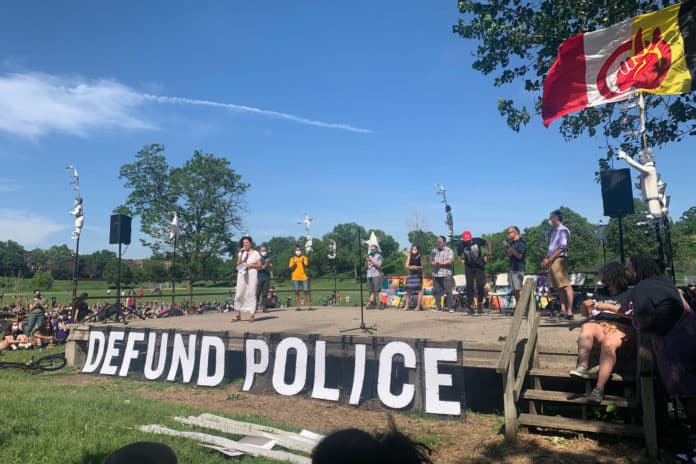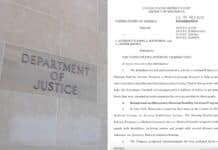
The Minnesota Supreme Court has granted a case review for eight Minneapolis residents appealing a lower court’s decision that argues the mayor of Minneapolis does not have a duty to employ police officers.
According to a news release from the Upper Midwest Law Center (UMLC), the legal group representing the eight residents, the Minnesota Supreme Court also granted a motion to expedite the appeal, and will therefore hear their case on Thursday, June 9.
“The Supreme Court made the right decision to take this case, which is so important to the safety of the people of Minneapolis,” said James Dickey, senior trial counsel for UMLC. “We look forward to bringing our strong arguments to the Supreme Court and obtaining reinstatement of the order for Minneapolis to restore the police force and comply with the City Charter.”
In March, the Minnesota Court of Appeals overturned a Hennepin County District Court ruling that said the city of Minneapolis needed to fund and employ a police department of at least 731 officers. The eight residents of north Minneapolis are seeking to get that district court ruling reinstated.
The state’s appeals court admitted that the Minneapolis City Council is legally obliged to “continuously fund a police force with a minimum number of sworn police officers,” but it argued that the City Charter does not legally oblige the mayor to “continuously employ that same minimum number of sworn police officers.” The court referred to the mayor’s duty as “discretionary.”
This, as UMLC put it, “makes no sense.”
Dickey said the appeals court ruling would effectively create a “ghost force” of police officers — an unwelcome development in a city plagued with an understaffed police force and high crime rates.
“The record in this case is replete with pages upon pages of the Petitioners’ testimony of their suffering because of the lack of police protection on the North Side of Minneapolis, and Mayor [Jacob] Frey’s admissions that a lack of police presence causes their suffering,” UMLC said in court documents.
Reacting to the ruling in March, Dickey said the court’s decision “destroys the meaning of the Minneapolis City Charter.”
“According to the court, as long as the City Council writes down a number of officers on paper, that’s good enough, even though the money isn’t actually there to fund the actual number of officers,” he said.
“If you have a number on paper that says 750 officers but then you have 250 on the force, have you really provided the funds for it? The answer that we thought is no,” he added.










